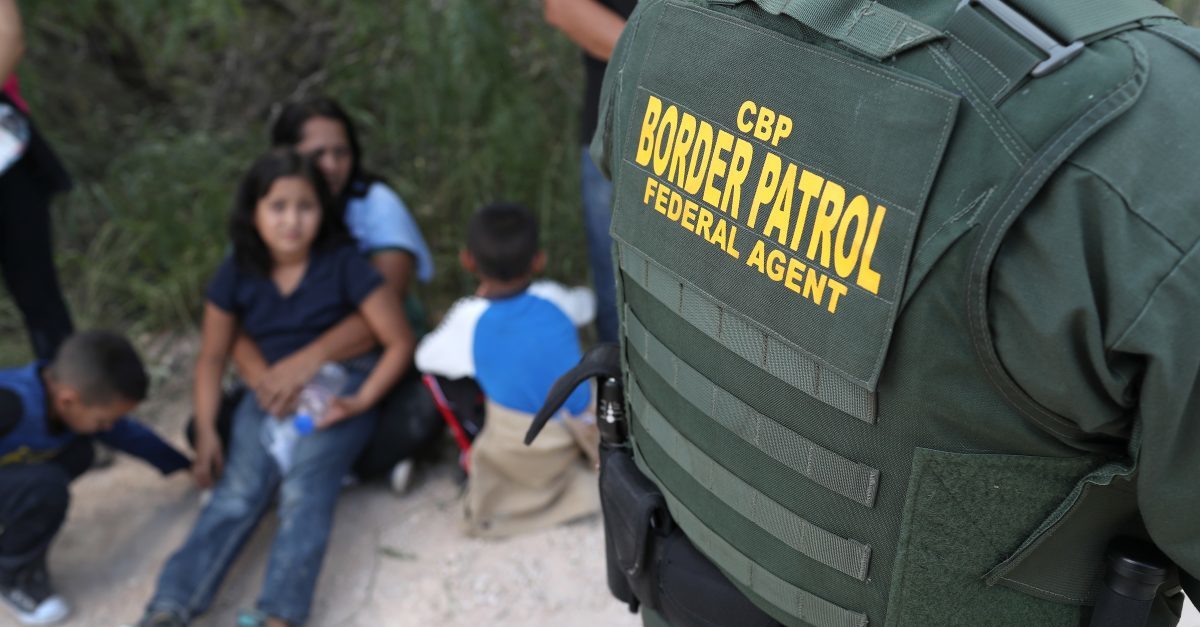
On the same day that SCOTUS will consider the fate of Dreamers under the DACA program, it will also hear oral arguments in a nearly decade-old case involving a Mexican teenager who was killed by U.S. agents while playing on the Mexican side of the U.S.-Mexico border. This will be the second time Herndandez v. Mesa has made its way up to the highest court in the land.
The case is a civil lawsuit filed by the parents of Sergio Hernández Gueraca—a 15-year-old boy who was fatally shot in 2010 by a U.S. Border Patrol agent. Sergio had been playing a game in which friends dared each other to touch the U.S. fence and run back toward Mexico. Officer Jesus Mesa Jr. fired a fatal shot from the American side, and Sergio died 60 feet away, in Mexico. At this point, sorting through the facts isn’t what’s at issue; at this phase of the litigation, the court must proceed as if the plaintiffs’ claims are provably true.
The question raised by the Hernández case (now consolidated with Swartz v. Rodriguez–another shocking border-shooting case) is whether those outside the U.S. have certain constitutional rights.
Neither Sergio, nor his plaintiff-family members are immigrants or refugees: they are Mexicans who intended to remain in Mexico. The case isn’t about immigrants’ rights, but rather, about whether we will permit non-Americans to hold American agents liable for a fatal abuse of power. Officer Mesa killed Sergio while standing on American soil; any lawbreaking the officer did was done in the U.S.
SCOTUS granted certiorari only on the question of whether a valid Bivens claim (legal shorthand for civil claims of federal violation of constitutional rights) exists. Now, SCOTUS will need to weigh in on a circuit-split on approaching such claims. For more background on how the different federal circuits have historically handled such claims, see here.
The Hernández family hopes it can successfully characterize its claim as one that is part of a long tradition of holding federal officers responsible for their own misconduct. As one of the amici put it in a friend-of-the-court brief:
The common thread among these incidents is that the victims and their families are at once the most vulnerable to Border Patrol abuses and the most powerless to stop them.
By contrast, the federal government argues that allowing the Hernández claim to proceed will extend the scope of Bivens claims much too far.
Although the Hernández case isn’t directly about immigration, it is proceeding in an atmosphere in which U.S.-Mexican relations and beliefs about illegal immigration permeate the air. The federal government has argued that past border shootings, “have prompted exchanges between the United States and Mexico,” and that allowing Border Patrol agents to be held liable could negatively impact national security. If those agents feared liability, they, “will hesitate in making split second decisions,” goes the argument.
Tensions will be high on Tuesday, as we see not only how SCOTUS may rule — but perhaps more importantly, how the Court frames the analysis. Will the justices view the case — as suggested by Vox correspondent
[image via John Moore/Getty Images]